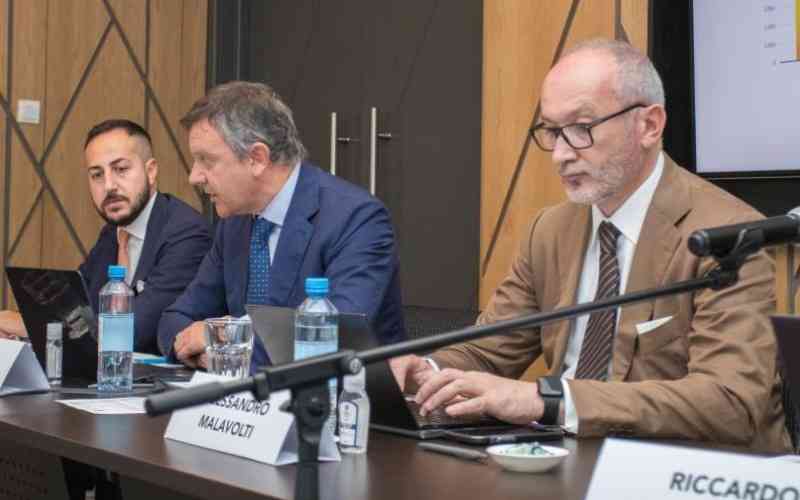×
The Standard e-Paper
Kenya’s Boldest Voice

L-R; Fabio Ricci, FederUnacoma Deputy Director General, Alessandro Malavolti, the President of the Italian federation of agricultural machinery manufacturers (FederUnacoma) and Riccardo Zucconi, the Director of Agenzia ICE in Addis Ababa - who is also responsible for Kenya, during the presentation of the EIMA International Exhibition which will be held in Bologna Italy from November 9 to 13, 2022 [Nanjinia Wamuswa, Standard]
To encourage more youth to join agriculture, there is need to embrace mechanisation.